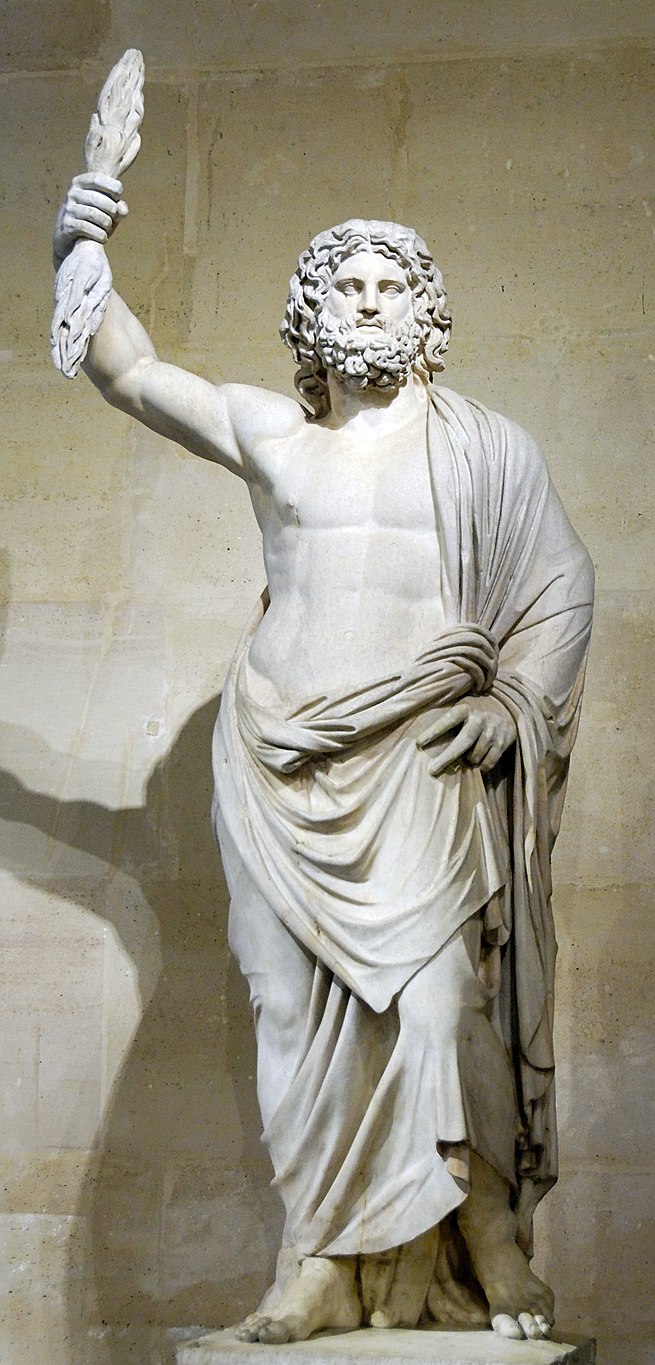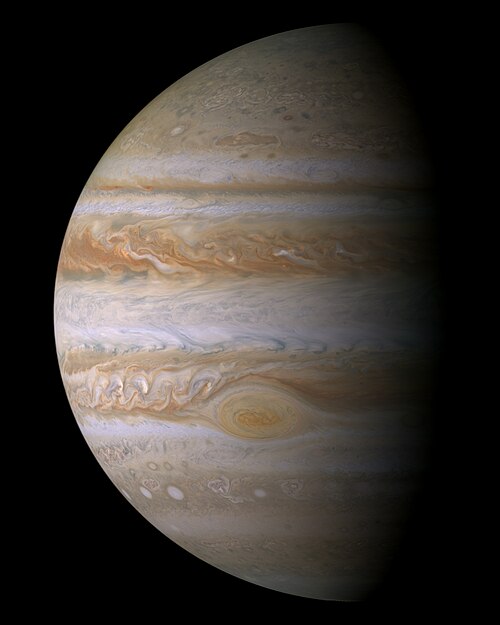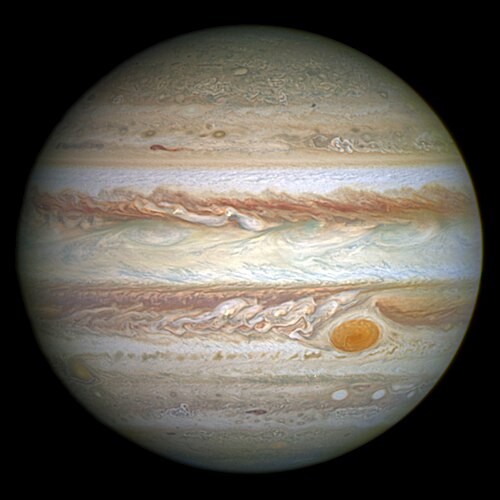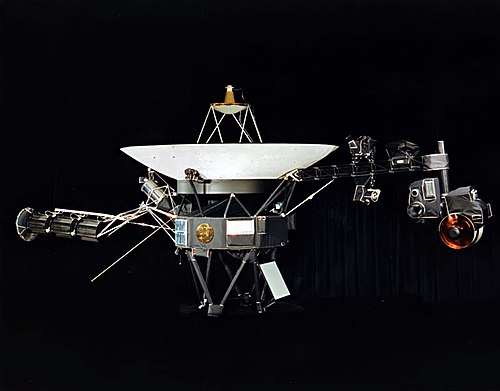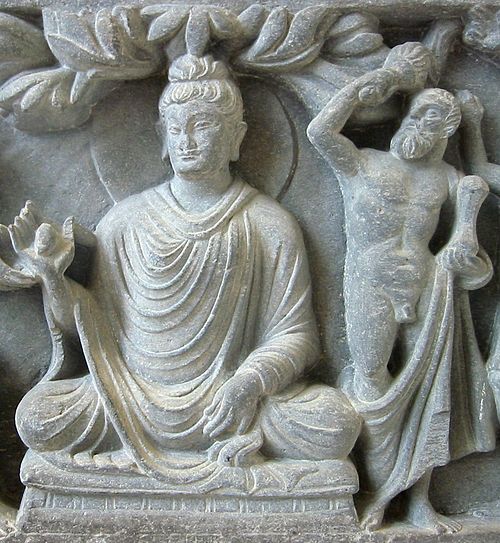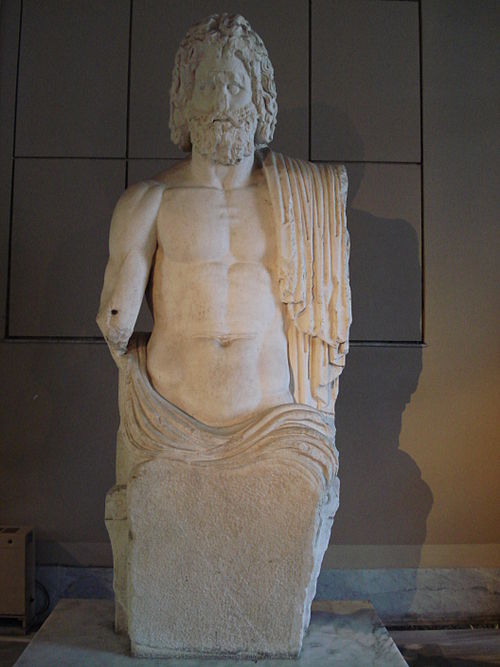Jupiternoun
A class of planets that are similar in mass to Jupiter.
Jupiternoun
The supreme deity, king of gods and men, and reputed to be the son of Saturn and Rhea; Jove. He corresponds to the Greek Zeus.
Jupiternoun
One of the planets, being the fifth from the sun, the brightest except Venus, and the largest of them all, its mean radius being about 43,345 miles (69,758 kilometers), almost exactly one-tenth that of the sun. It revolves about the sun in 4,332.6 days, at a mean distance of 5.2025 from the sun (778,140,000 km), the earth's mean distance (the astronomical unit) being taken as unity. It has a mass of 1.901 x 1027 kg, about one-thousandth that of the sun, and more than the remainder of the planets combined. It has an average solar day equal to 9.842 earth hours. The rapid revolution causes a noticeable flattening at the poles; the diameter at the equator is 71,370 km, and at the poles 66,644 km.
Jupiternoun
the largest planet and the 5th from the sun; has many satellites
Jupiternoun
(Roman mythology) supreme god of Romans; counterpart of Greek Zeus
Jupiter
Jupiter is the fifth planet from the Sun and the largest in the Solar System. It is a gas giant with a mass more than two and a half times that of all the other planets in the Solar System combined, but slightly less than one-thousandth the mass of the Sun.
Zeusnoun
The chief deity of the Greeks, and ruler of the upper world (cf. Hades). He was identified with Jupiter.
Zeusnoun
(Greek mythology) the supreme god of ancient Greek mythology; son of Rhea and Cronus whom he dethroned; husband and brother of Hera; brother of Poseidon and Hades; father of many gods; counterpart of Roman Jupiter
Zeusnoun
type genus of the family Zeidae
Zeus
Zeus is the sky and thunder god in ancient Greek religion, who rules as king of the gods of Mount Olympus. His name is cognate with the first element of his Roman equivalent Jupiter.


